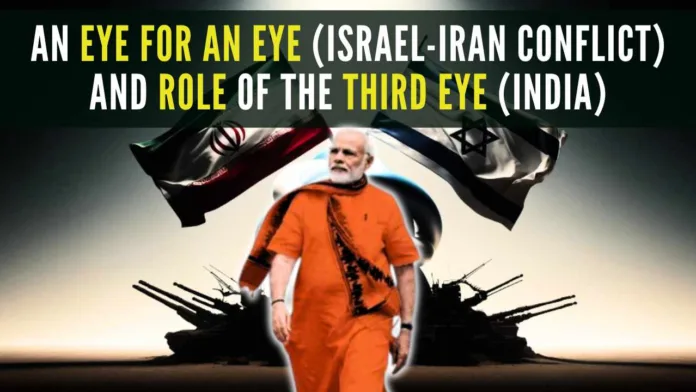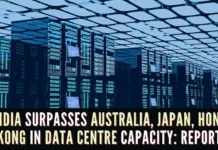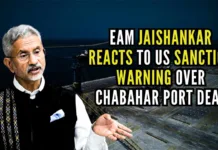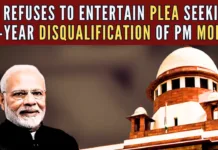
Bringing peace and stability to a long-standing geopolitical issue with Modi’s help
We know the idiom that an eye for an eye makes the whole world blind. We discuss it in the context of the Israel-Iran conflict which, if unchecked, has the potential to make the whole world involved. We propose that the cosmic Third Eye of India’s Modi should help broker peace and stability for a deeply rooted and longstanding geopolitical issue of historical, religious, and strategic dimensions.
Why Modi? He is not only a preeminent global leader but his intuition, wisdom, spiritual energy, and visionary and strategic thinking are akin to Shiva’s Third Eye. In Hindu tradition, the Third Eye, also known as the sixth chakra, symbolizes the physical and spiritual connection. It enables deep understanding and the ability to see beyond what is in front of us.
Combining the above traits with Modi’s charismatic leadership and friendly relations with the leaders of Israel and Iran makes him the most suited to broker a peace deal. A globetrotter Modi also understands the complex geopolitical issues. He is perhaps the only leader in modern times who can see straight in the eyes of the leaders of the United States and Russia.
What are the issues? The core issues revolve around Iran’s nuclear program and its alleged support for militant groups in the region. Iran has openly called for the destruction of the Jewish state and has threatened Israel’s existence and security. The ongoing conflict has manifested in proxy wars, covert operations, and heated rhetoric between the two nations. Bharat, that is India, can leverage its neutral stance in the conflict because of its long-standing policies of non-alignment and non-violence. Modi, the world-class diplomat with the cosmic Third Eye, has the ability to provide a conducive environment for both parties to engage in constructive dialogue.
Other attributes of Bharat and its leader Modi include:
Diplomatic Channels: The three Eyes or I’s (India, Israel, and Iran) have diplomatic relations to facilitate direct communications. This will help in initiating the first steps toward building mutual trust and confidence and establishing a framework for negotiations.
Economic Prowess: Bharat, aspiring to be the third largest economy, has already garnered its growing economic influence globally and in the region. The trade agreements, investment opportunities, and infrastructure projects among the three Eyes are mutually beneficial carrots to encourage cooperation and reconciliation. Highly unlikely but, if necessary, Bharat has the ability to offer economic incentives as part of a potential peace plan.
Regional Stability: Historically, Bharat has always shown interest in maintaining stability in the Middle East which aligns with the goal of resolving the Israel-Iran conflict. Modi has traveled to the region multiple times and received some of their highest civic awards Thus, the peace and stability between the two eyes (Israel-Iran) can safeguard Bharat’s own strategic interests and contribute to global peace efforts.
Record in Conflict Resolution: Bharat has a track record of mediating conflicts, both regionally and internationally. Its involvement in peacekeeping missions and conflict resolution efforts, such as in Sri Lanka and Afghanistan, amply shows Bharat’s ability to facilitate dialogue and broker peace agreements. Modi has unequivocally reiterated India’s “consistent position in favor of dialogue and diplomacy” as the way forward for resolving the more than one-year-old conflict between Russia and Ukraine.
Multiculturalism: Bharat’s highly diverse cultural heritage and history of religious tolerance for centuries provide it with a unique understanding of the complexities of the Jewish-Islam conflict. This cultural empathy and Modi’s understanding of the religious divide between Hindu-Muslim communities can be instrumental in bridging the gap between the two Eyes.
International Stature: Bharat’s status as a rising global power commands attention and respect on the international stage. Its involvement in peace negotiations can garner support from influential multinational groups like the G20, QUAD, BRICS, and the United Nations. Modi himself can be very persuasive with the leaders of the United States, European Union, and Russia in strengthening the legitimacy and effectiveness of the peace process.
In conclusion, Bharat possesses diplomatic, economic, and strategic capabilities and Modi’s Third Eye can contribute significantly to the resolution of an eye for an eye (Israel-Iran conflict). Bharat can leverage its neutral stance, diplomatic channels, and regional influence and Modi can use his hugging diplomacy and personal acumen to facilitate peace talks.
The world will decidedly be a better place with comprehensive peace not only between Israel and Iran but also between Russia and Ukraine. Thus, it is an urgent call for Modi to use his Third Eye for fostering stability and security in the Middle East conflict and beyond.
Note:
1. Text in Blue points to additional data on the topic.
2. The views expressed here are those of the author and do not necessarily represent or reflect the views of PGurus.
For all the latest updates, download PGurus App.
- Ra-Ra-Ra… Rahul to Raebareli to Rawalpindi but not Ram and Rashtra - May 5, 2024
- An Eye for an Eye (Israel-Iran conflict) and role of the Third Eye (India) - April 29, 2024
- Education and election in Bharat: Race to the top - April 16, 2024










